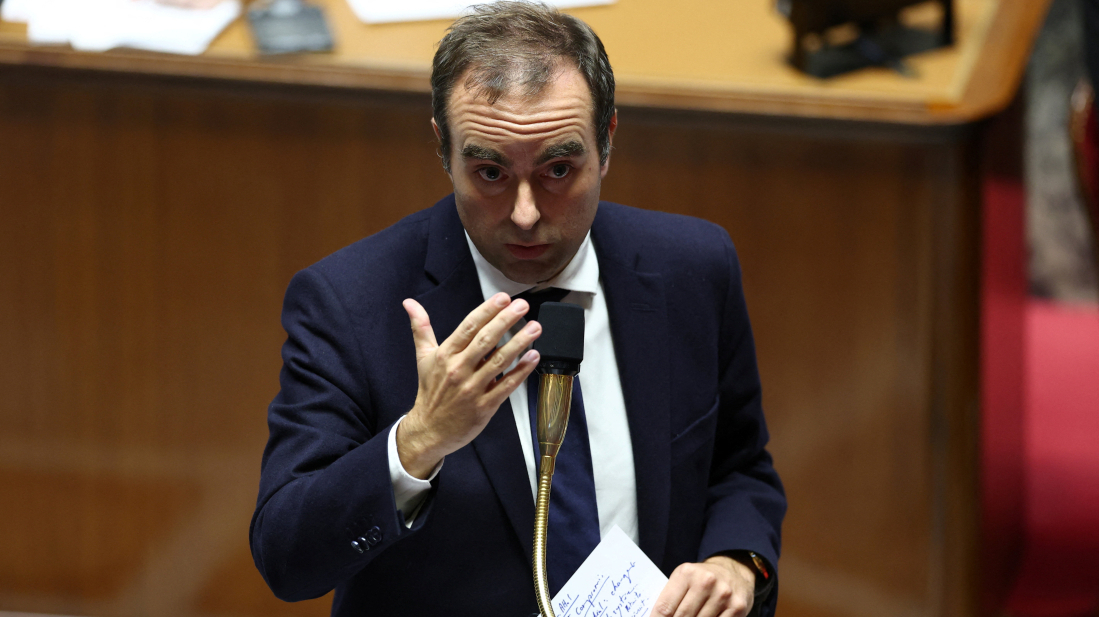European Parliament calls to suspend EU-U.S. trade deal citing 'tariff chaos'
The European Parliament’s trade chief has urged a temporary suspension of the EU–U.S. trade agreement approval, citing “tariff chaos” followin...

France will borrow a record €310 billion from financial markets next year to finance its growing public deficit and refinance maturing debt, according to figures released by Agence France Trésor (AFT) on Tuesday.
The debt office said the amount represents 10.1 percent of France’s GDP in 2026 — unchanged from this year and still below the peak of 11.2 percent recorded in 2020 during the COVID-19 crisis.
The borrowing plan comes as Prime Minister Sébastien Lecornu faces a tense week in parliament, where two no-confidence motions have been filed against his minority government. Despite the political turmoil, the government appears set to survive after the Socialist Party confirmed it will not back any move to topple Lecornu.
Socialists confirm they will not vote to oust government
Socialist spokeswoman Dieynaba Diop said on Tuesday that her party “will not vote for a no-confidence motion at this stage”, effectively ensuring the government remains in power long enough to present its 2026 budget.
The announcement followed reports in French media citing Socialist lawmakers who said their decision was final, at least for now. Their stance means the hard-left France Unbowed and far-right National Rally parties, which tabled separate no-confidence motions, lack the numbers to bring down the government.
The conservative Les Républicains party also said it would back Lecornu’s government “for the sake of stability”, further reducing the risk of a collapse.
Pension reform suspended to ease tensions
In an effort to calm tensions and win support from the centre-left, Lecornu announced that the controversial pension reform raising the retirement age from 62 to 64 will be suspended until the 2027 presidential election.
He said the pause would allow time for “a new debate” on the future of work and retirement, including a proposed national conference involving trade unions and employers.
“This conference will have time to reach an agreement before the presidential election,” Lecornu told lawmakers. “If it does, the government will turn it into law and parliament will decide.”
The move was welcomed by unions as a “victory for the left” but dismissed by the far-left France Unbowed as “a delaying tactic”.
Budget strain and mixed reactions
Lecornu’s 2026 draft budget foresees cuts to more than 3,000 public sector jobs, a freeze on pensions and social benefits, and an extended surtax on high earners. Critics say the plan places too much of the burden on middle- and low-income households.
Economist Gabriel Zucman accused the government of protecting billionaires, saying “everything has been done to spare Bernard Arnault and other wealthy elites”.
Meanwhile, the French fiscal watchdog, the Haut Conseil des Finances Publiques, warned that the budget’s projections rest on “overly optimistic” growth assumptions and may not deliver the expected savings.
Macron warns of dissolution if Lecornu falls
President Emmanuel Macron has warned that any successful no-confidence vote would automatically trigger the dissolution of the National Assembly and fresh elections. Government spokeswoman Maud Bregeon said such a motion would be treated as “a dissolution vote in disguise”.
For now, the Socialists’ decision has bought Lecornu valuable time. But as France faces record borrowing, deep budget cuts and ongoing political division, his government remains under pressure to prove it can deliver both stability and results.
A seven-month-old Japanese macaque has drawn international attention after forming an unusual bond with a stuffed orangutan toy after being rejected by its mother.
Divers have recovered the bodies of seven Chinese tourists and a Russian driver after their minibus broke through the ice of on Lake Baikal in Russia, authorities said.
President Donald Trump said on Saturday (21 February) that he will raise temporary tariffs on nearly all U.S. imports from 10% to 15%, the maximum allowed under the law, after the Supreme Court struck down his previous tariff program.
Pakistan said it carried out cross-border strikes on militant targets inside Afghanistan after blaming a series of recent suicide bombings, including attacks during the holy month of Ramadan, on fighters it said were operating from Afghan territory.
Iran announced on Saturday (21 February) that it has designated the naval and air forces of European Union member states as “terrorist entities” in a reciprocal move after the EU blacklisted the Islamic Revolutionary Guard Corps (IRGC).
Further Iran-U.S. nuclear talks are scheduled in Geneva on Thursday (26 February) as diplomacy resumes over Tehran’s nuclear programme following earlier mediation efforts. But will the talks move Iran-U.S. negotiations closer to a deal, and what should be expected from the meeting?
China says it's making a "full assessment" of the U.S. Supreme Court's tariff ruling and urged Washington to lift "relevant unilateral tariff measures" on its trading partners, the Chinese commerce ministry said in a statement on Monday (23 February).
Start your day informed with AnewZ Morning Brief. Here are the top news stories for the 23rd of February, covering the latest developments you need to know.
A “Victory will be ours” banner was hung on the Russian Embassy in Seoul, ahead of the fourth anniversary of Russia’s full-scale invasion of Ukraine. It remains on display despite a request from the South Korean Foreign Ministry on Sunday (22 February) for its removal, sparking widespread criticism.
North Korea’s Workers' Party of Korea has re-elected Kim Jong Un as general secretary during the party congress in Pyongyang state media reported.
You can download the AnewZ application from Play Store and the App Store.

What is your opinion on this topic?
Leave the first comment